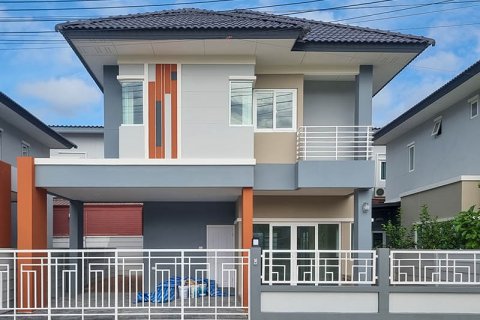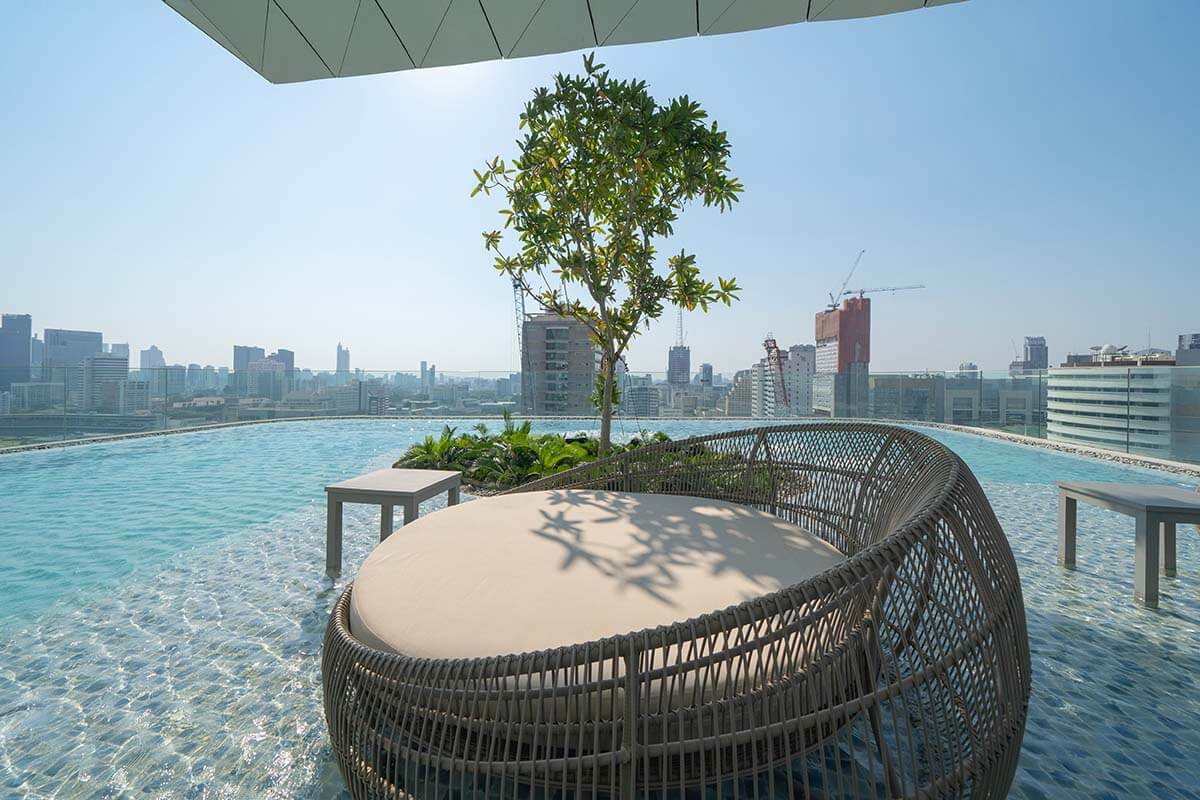
Content:
- Can a foreigner own a property in Thailand?
- What taxes are to be paid when purchasing a property or leasing it out?
- Can a foreigner lease a property out legally?
- What are the responsibilities of a property management company?
- Does a real estate owner receive any visa privileges?
- Can a foreigner receive a mortgage loan in Thailand?
- Is it possible to purchase real estate in Thailand without coming in person?
- Should the owner register the property? In which organization?
- Is it possible to transfer property in Thailand by inheritance?
Can a foreigner own a property in Thailand?
A foreigner can own real estate in the Kingdom of Thailand (a house or an apartment) but can’t own land. A plot of land can be rented on a long-term lease for up to 90 years. A long-term lease, also known as a leasehold, is quite a common type of property ownership in many countries of the world. Alternatively, a foreigner can register a company in Thailand and buy land in the company’s name. However, 51% of the company must be owned by Thai citizens. Don’t be scared of a long-term lease as Thailand-Real.Estate aggregator experts will help you understand this type of property ownership.
There is also a restriction on the purchase of apartments in high-rise buildings: only 49% of the property can be owned by foreigners.
A foreigner can buy real estate units in any region of the country, there are no restrictions.
What taxes are to be paid when purchasing a property or leasing it out?
Property tax was only introduced in Thailand in 2019. During the pandemic, tax collection was suspended to alleviate the financial status of the population.
Tax rates are quite low, which will please investors. Residential property tax varies from 0.03 to 1% depending on the appraised property value.
With a sale-purchase, you will also need to pay fees and taxes. Fees are shared and agreed upon between the buyer and seller.
It is necessary to pay a tax on the ownership transfer -2% of the actual cost. For long-term rentals, a rental registration tax of 1% of the property value is paid instead. You will also need to pay stamp duty (0.5% freehold or 0.1% leasehold) and income tax.

Can a foreigner lease a property out legally?
Real estate owned by a foreigner can be rented out. Some banks will allow you to open an account to collect rent. Please note that if you rent out a real estate unit, you must pay income tax. Income tax is calculated based on a progressive scale. Below is a table with current rates for 2022. Rates will be re-calculated in 2024:
| Income (BHT) | Tax Rate |
|---|---|
| 0 – 150 000 | No |
| 150 000 – 300 000 | 5% |
| 300 000 – 500 000 | 10% |
| 500 000 – 750 000 | 15% |
| 750 000 – 1 000 000 | 20% |
| 1 000 000 – 2 000 000 | 25% |
| 2 000 000 – 4 000 000 | 30% |
| >4 000 000 | 35% |
You can either lease out your property yourself or with the help of an agency or a management company.
What are the responsibilities of a property management company?
After signing a property management agreement, the agency (or management company) usually conducts the following:
- search for tenants to bring about the best profit;
- document flow (signing of contracts with tenants). Some management companies will also issue TM.30 to foreign tenants. This is a "Notice from the Landlord, Owner or Owner of Residential Premises in which a Foreign Person Lives". The owner will then not have to complete this form in the immigration department;
- collection of rent and timely payment monitoring;
- payment of utility bills, as well as other bills;
- supervision of the safety of the property, cleaning the property before new tenants move in;
- settlement of disputes with tenants.
Does a real estate owner receive any visa privileges?
When buying property in Thailand, a foreigner does not automatically receive visa privileges or a residence permit. The most convenient way for investors to stay in Thailand for a long time is the Thai Elite Visa. The Thai Elite Visa can be acquired by a foreigner who has invested $300,000 (BHT 10,000,000) in the Thai economy. This visa allows you to live in the country for 5 to 20 years. Real estate is also considered an investment in the country's economy. You can purchase one property worth BHT 10,000,000 or several properties, with the total cost exceeding this amount.

Can a foreigner receive a mortgage loan in Thailand?
Only a resident of the country can apply for a loan from a Thai bank. You can’t get a mortgage or a loan in Thailand with a tourist visa.
A foreigner can become a resident of Thailand. A foreigner is entitled to a mortgage if:
- he/she has an official job in Thailand (a work permit for 1 year with a minimum income of BHT 80,000 per month);
- he/she has a residence permit. To obtain this, it’s necessary to extend a long-term visa for more than 3 years consecutively, be proficient enough in the Thai language for an interview and be a taxpayer;
- he/she has a spouse with Thai citizenship;
- the borrower must be under 60 years of age at the time of completion of the mortgage payments.
Even if a foreigner’s a resident of Thailand and meets all the requirements, the bank may still refuse a loan or ask for additional guarantees.
Thai banks do not issue loans to foreigners if the amount is more than 70% of the property cost. The terms of the loan are granted for a maximum of 15 years. The interest is higher than for Thais, (up to 9% per annum), depending on the conditions of a specific bank.
Another way for a foreigner to get a loan for a real estate purchase is to apply for the MBK Guarantee. The organization has existed for approx. 10 years and provides financial support to foreigners in Thailand. The interest rate in the organization is higher than in the bank and is kept at an approx. level of 10%. A loan is issued for an amount not exceeding 50% of the property cost for a period of up to 10 years. The organization does not require a lot of documents and solvency guarantees. In this case, the foreigner does not need a work permit, a residence permit, or letters of guarantee from the Thais. The offer is only valid when purchasing a property in Bangkok and the main resorts of the country: Phuket, Pattaya, Hua Hin, etc.
An easier option for a foreigner is an installment plan set by the developer. Developers will arrange installments for both finished developments and also the construction stage. For finished developments, the installment plan is usually for a year, and several years for those under construction - until the construction is completed.
Is it possible to purchase real estate in Thailand without coming in person?
Housing in Thailand can be purchased remotely. Ownership must be registered with the Land Department. This can be done by a lawyer if he/she has a letter of attorney issued by the owner.

Should the owner register the property? In which organization?
One of the most important documents that you receive when buying real estate in Thailand is the property right or Chanot. In this document, the real estate layout is drawn, and all the details about the house/apartment are given. On the reverse side, is a list of property owners and notes about any real estate actions done. This document is issued by the land department.
The second document is the House Registration Book or Tabien Ban. The book comes in two colors: blue and yellow. Blue is issued to persons with Thai citizenship and may also be issued to the country’s residents. Yellow is for foreigners. This document can be compared with a residence permit: it proves that you live in a particular house. It’s issued by the municipal government.
When purchasing a property, you’ll also receive a copy of the contract of sale. The package of documents includes a document on the developer company registration.
The owner or his/her representative by proxy can register the property and obtain the documents.
Is it possible to transfer property in Thailand by inheritance?
The owner has the right to transfer the property by inheritance. The name of the heir must be inscribed in the title deed. If the name was not entered, then the inheritance proceeds in the following order:
- parents;
- spouses;
- children;
- senior adult male relative.
If you have any other questions, please speak to the real estate aggregator experts in Thailand-Real. Estate and they’ll be more than happy to help!
